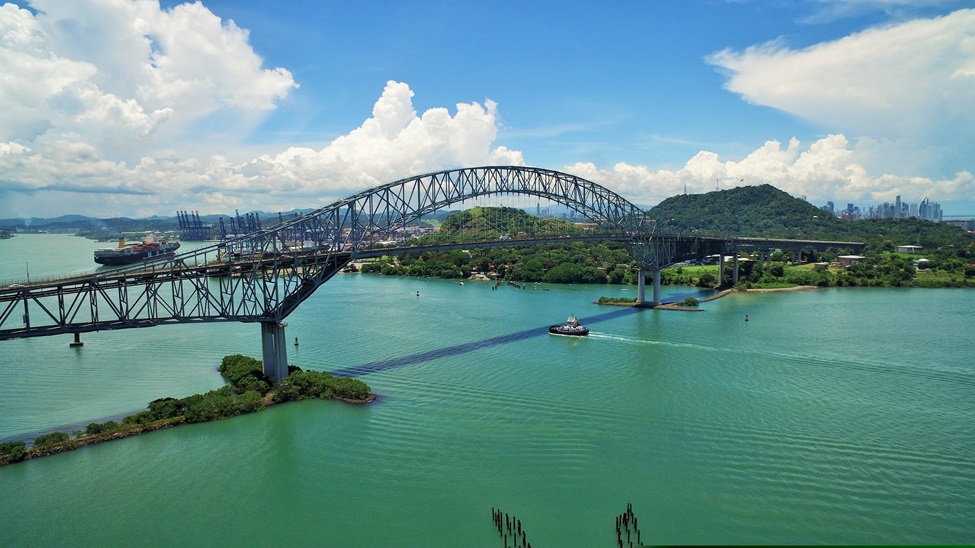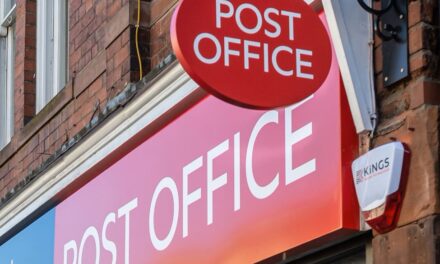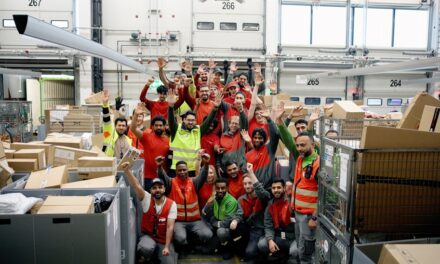
ParcelHero: As peak season approaches, the consequences of the Panama Canal’s restrictions will become more apparent

Escalating costs and delays caused by the Panama Canal’s worst drought for 70 years are playing havoc with the world’s supply chains as we approach Christmas, warns the international delivery expert ParcelHero.
The amount of goods carried by vessels using the canal has been massively reduced and there are now severe cuts to the daily number of ships permitted to use the vital trade link.
David Jinks M.I.L.T., ParcelHero’s Head of Consumer Research and former Editor of ‘Lloyds Shipping Index’, says: “Generally, around 36 ships are allowed to transit the canal a day. However, in recent months there has been a sharp reduction in the number of ships permitted to use the canal and, by 1 December, a limit of 22 sailings will be in force. Even stricter limits are planned, although a few extra slots are being made available for those willing to enter an auction to win an early transit.
“The result is that some desperate operators who haven’t booked their transit of the canal months in advance are paying up to $4 million at auction. According to bidding documents, Japan’s Eneos Group paid US$3.975 million earlier this month.
“It’s not only costs that are rising. Capacity has also been slashed. In normal times, when there is plenty of water, the maximum draught is 50ft (15.24m). In recent months, that has been slashed to 44ft (13.41m). That means some massive Neo Panamax vessels are sailing at considerably less than full capacity.
“Shipping companies are being forced to either continue to use the 48-mile long canal, at higher costs and reduced loading, or re-route. Alternative routes are slower and costly, however. A one-way voyage between China and the US Gulf takes 30 days at 14 knots via the Panama Canal. However, it would take 40 days to go via the Suez Canal or 45 days around the Cape of Good Hope. The result is that shippers are imposing new surcharges on their customers, and that will have a knock-on effect on consumers.
“The huge French carrier CMA CGM (the third-largest shipping line in the world) has already announced a forthcoming surcharge on all shipments transiting the Panama Canal. It says: “By January 1st 2024, the booking windows for transiting the Neopanamax locks will be reduced by -30%. These restrictions, combined with an increase in the Canal Tariff implemented earlier in the year, are taking a severe toll on CMA CGM’s operations.” As a result, it has revealed a $150 per TEU container “Panama Adjustment Factor”. A typical Panamax container ship can carry 5,000 TEU containers. That means increased costs of up to $750,000 per transit. That’s only the increase for standard Panamax vessels. The enormous New or Neo Panamax vessels are able to carry up to 13,000 TEU containers. These ships are looking at a very significant increase in costs.
How might the Panama crisis affect Christmas here in the UK?
“40% of container traffic to the US uses the canal. Many of those delayed containers will be full of electronic goodies from US brands that are actually made in China (think iPhones) or components made in Asia for US assembly, such as microchips. That means supply chains are being stretched at just the wrong time of the year. The result could be shortages of goods and increased prices as retailers fight over available stocks. There will be a significant impact on a range of products typically carried on the canal in containers, including TVs, mobile phones, exercise bikes, PCs, Christmas sweaters and tree lights.
“More immediately, British businesses will be affected by delays and rising costs on goods sent from the US West Coast. The delays are also bad news for UK manufacturers and retailers exporting their products to destinations such as California via the canal.
‘The Panama Canal is also used to move petroleum, grains and petro-chemicals. That means everything from energy to food to manufacturing prices could be impacted in the run-up to Christmas.
‘One small piece of good news is that the problems are unlikely to significantly impact courier and express parcel deliveries between the UK and the US West Coast over Christmas. These are usually air freighted, bypassing the Panama problem.
‘As peak season approaches, the consequences of the Panama Canal’s restrictions will become more apparent.”










